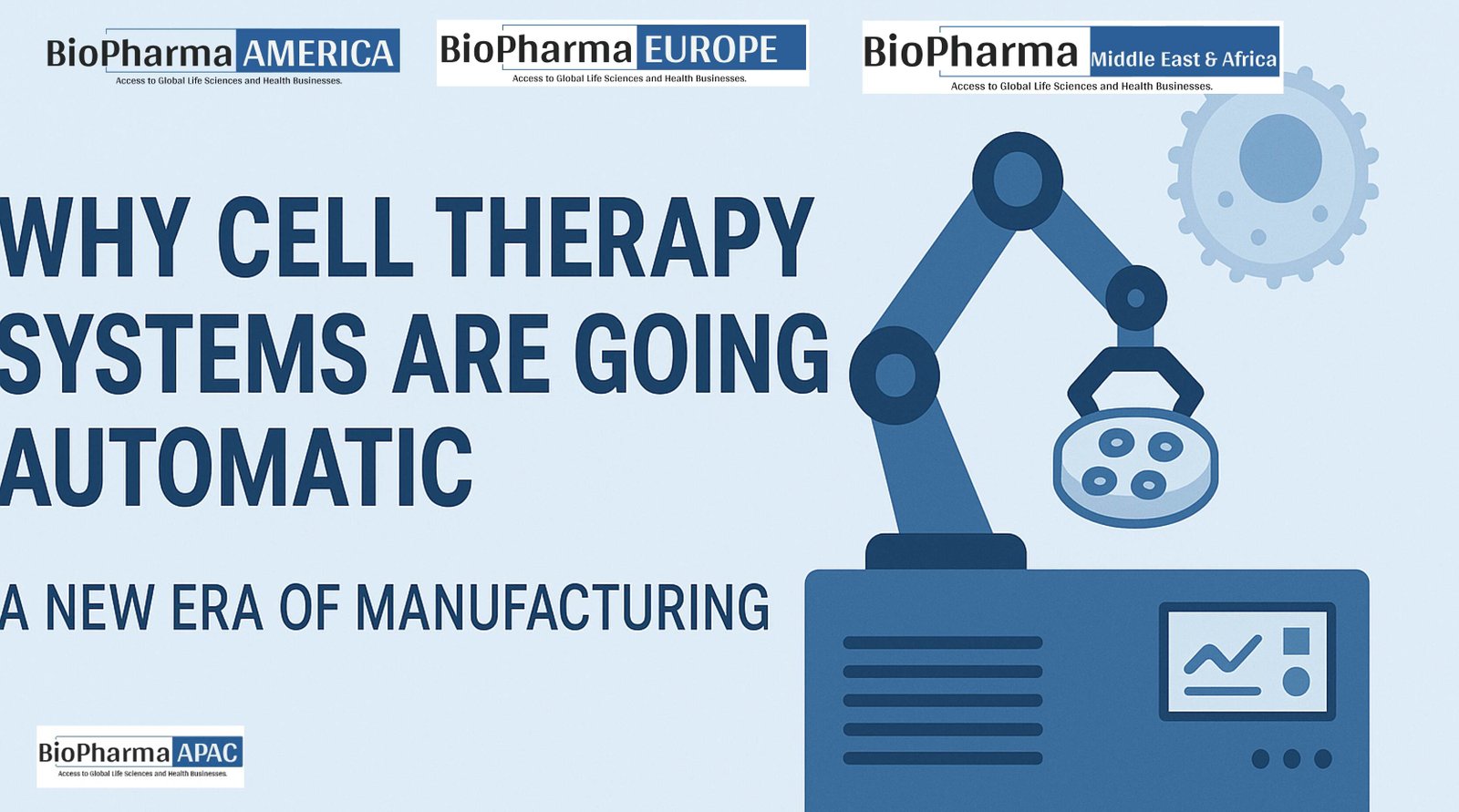From Manual Craft to Machine Precision: How Leading Innovators Are Reshaping the Future of Cell Therapy Production
Cell therapy stands at the forefront of modern medicine, offering transformative potential for treating a wide spectrum of diseases—from aggressive cancers to rare genetic disorders. But as this pioneering field moves from early-stage research to widespread clinical application, it confronts a critical challenge: how to reliably, consistently, and safely manufacture living cells at scale.
This is where automation steps in.
What was once a highly manual, craft-like process—dependent on skilled hands and subject to variability—is now evolving into a standardized, machine-driven ecosystem. Automation is not just streamlining operations; it’s redefining the future of cell therapy manufacturing, ensuring that these life-saving treatments can be produced efficiently, affordably, and at scale.
Here’s what’s driving this shift—and why automation is becoming essential in the journey from the lab bench to the bedside.
The Complexity of Cell Therapies Demands Precision
Unlike traditional pharmaceuticals, cell therapies involve living cells—dynamic, variable entities that require careful handling. Whether it’s CAR T-cells engineered to fight cancer or stem cells designed for tissue repair, these therapies hinge on maintaining cell viability and function throughout the production process.
Manual operations, despite best efforts, introduce variability—in operator technique, environmental exposure, and timing. Automation brings consistency. Systems designed to control parameters like temperature, oxygen levels, and media exchange reduce human error and ensure repeatable, high-quality outcomes.
Scaling Up: From One Patient to Many
In autologous therapies (using a patient’s own cells), every batch is unique. But as the industry evolves toward allogeneic approaches (using donor cells for many patients), the need for large-scale manufacturing becomes critical.
Automation enables scaling-out (parallel production of multiple small batches) and scaling-up (increasing the size of production batches). Automated, closed systems can manage these processes while maintaining stringent GMP (Good Manufacturing Practices) standards, paving the way for commercial viability.
Reducing Costs and Time-to-Market
Cell therapy manufacturing is expensive—from skilled labor to custom processes. Manual operations are labor-intensive and time-consuming, often taking weeks to produce a single batch. Automation helps reduce labor costs, minimizes downtime, and accelerates turnaround times.
Faster production means therapies can reach patients quicker—especially vital for time-sensitive treatments like CAR T-cell therapy for aggressive cancers. This also improves market competitiveness as companies seek to offer life-saving treatments at accessible costs.
Enhancing Regulatory Compliance
In cell therapy, traceability and documentation are everything. Every step, from cell sourcing to final product release, must be meticulously recorded to satisfy regulators like the FDA or EMA.
Automated systems streamline this process through real-time monitoring, digital records, and automated reporting. This not only enhances data integrity but also simplifies audits and regulatory submissions, reducing the risk of non-compliance.
Enabling Complex, Multi-Step Processes
Manufacturing cell therapies isn’t a single-step process. It involves cell isolation, genetic modification, expansion, washing, formulation, and more. Coordinating these steps manually is challenging, especially at scale.
Automation platforms can integrate multiple processes into a single, closed system—reducing contamination risks and improving workflow efficiency. Emerging systems now support end-to-end automation, from raw material input to final cell product output, minimizing human intervention.
Meeting Global Demand for Advanced Therapies
The pipeline of cell and gene therapies continues to grow, with hundreds of clinical trials underway worldwide. As therapies receive regulatory approvals, the need for global distribution becomes a reality.
Automated systems can be replicated across geographies, ensuring standardized processes and quality regardless of location. This supports decentralized manufacturing models, bringing therapies closer to patients in different regions without compromising quality.
Lonza
Miltenyi Biotec
Terumo Blood and Cell Technologies
Sartorius
Ori Biotech
Fresenius Kabi
Corning
Resilience (National Resilience, Inc.)
Be The Match BioTherapies (NMDP)
Hitachi Cell Therapy Manufacturing Solutions
Minaris Regenerative Medicine (Showa Denko Group)
The Future: Integrated Digital and AI-Driven Systems
Looking ahead, automation in cell therapy manufacturing is set to become even smarter. Integration with digital platforms, artificial intelligence (AI), and machine learning will enable predictive analytics, real-time optimization, and adaptive control—further improving yield, quality, and efficiency.
The vision is a fully connected ecosystem where cell therapy production is automated, scalable, and intelligent—transforming how these therapies are delivered to patients worldwide.
Final Thoughts
The transition to automation in cell therapy systems isn’t just about efficiency—it’s about ensuring that life-saving treatments reach more patients, faster and safely. As the industry matures, automation will be the cornerstone of scalable, reliable, and accessible cell therapy manufacturing.
In this new era, where biology meets technology, automation is not just an option—it’s a necessity.
BioPharma APAC Knowledge Resource
( arcilla.fran@biopharmaapac.com )












